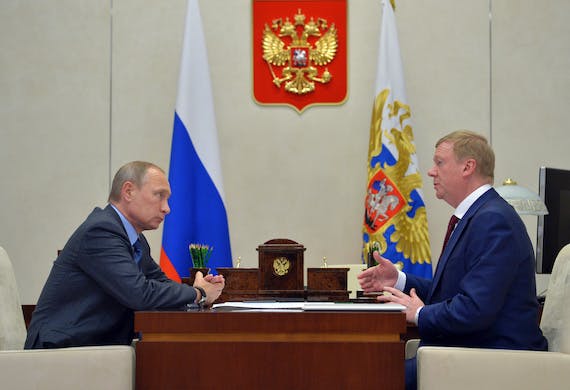
Can Trump ‘Nationalize’ Elections?
By THE NEW YORK SUN
|Anatoly Chubais is but the latest in a growing list of top players in Moscow who have either expressed skepticism about the war or were forced out by Putin.

Already have a subscription? Sign in to continue reading
$0.01/day for 60 days
Cancel anytime
By continuing you agree to our Privacy Policy and Terms of Service.
By BRADLEY CORTRIGHT
|